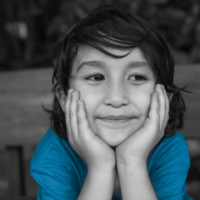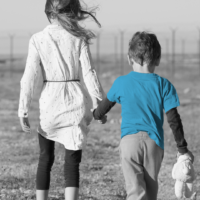Adverse Childhood Experiences (ACEs)
-

Does preschool executive control mediate the impact of early environmental unpredictability and deprivation on the general factor of psychopathology a decade later?
Open Access paper from the JCPP – ‘The current study evaluated whether deprivation and/or unpredictability early in life have unique effects on the general factor of psychopathology through impaired preschool executive control.’ Eric M. Phillips (pic) et al.
Read more -

Childhood mental health difficulties mediate the long-term association between early-life adversity at age 3 and poorer cognitive functioning at ages 11 and 14
Open Access paper from the JCPP – ‘Here, we test the hypothesis that early-life adversity may lead to mental health challenges which in turn have adverse consequences for the development of cognitive abilities.’ Tochukwu Nweze (pic) et al.
Read more -

Mindful Emotion Coaching (recording)
This free session is the fourth of ACAMH’s Adverse Childhood Experiences (ACEs) Special Interest Group Monthly seminars. In this session we discuss ‘Mindful Emotion Coaching’.
Read more -

Family Therapists Supporting the Hosts of Ukrainian Family (recording)
Following the response teams of Systemic Therapists have delivered face to face and online workshops for people hosting Ukrainians with a view to helping them prepare for the task and to support them throughout the process. This webinar discusses what has been helpful, what’s been learnt, and future planning.
Read more -

Adverse Childhood Experiences for schools – a MindEd e-learning Training (recording)
This free session was the second of ACAMH’s Adverse Childhood Experiences (ACEs) Special Interest Group Monthly seminars. In this session we discussed ‘Adverse Childhood Experiences for schools – a MindEd e-learning Training’.
Read more -

Effects of maternal childhood trauma on child emotional health: maternal mental health and frontoamygdala pathways
Paper from the JCPP – “Experiences of early life adversity pose significant psychological and physical health risks to exposed individuals”. Jessica P. Uy et al.
Read more -

Impact of Childhood Adversities on the Mental Health of LGBT+ Youth
In this podcast, we are joined by Lucy Jonas to discuss her recent JCPP Advances paper ‘A systematic review and meta-analysis investigating the impact of childhood adversities on the mental health of LGBT+ youth’.
Read more -

Working with Unaccompanied Asylum-Seeking Young People – recording
This free session was the first of ACAMH’s Adverse Childhood Experiences (ACEs) Special Interest Group Monthly seminars, it discussed ‘Working with Unaccompanied Asylum-Seeking Young People’. Presentations were from Dr. Ana Draper and Elisa Marcellino, Dr. Arnon Bentovim, Carol Jolliffe, and Sue Holmes.
Read more -

Early Trauma and the Importance of Early Relationships
In this podcast, we are joined by Sally Hogg, Deputy CEO at the Parent Infant Foundation, to discuss early trauma and the importance of early relationships.
Read more -

Adverse childhood experiences: what support do young people need?
Recent research funded by the National Institute for Health and Care Research (NIHR) identifies the types of support young people feel they need from services, and offers ways to support the mental health of children in care and those adopted from care.
Read more
